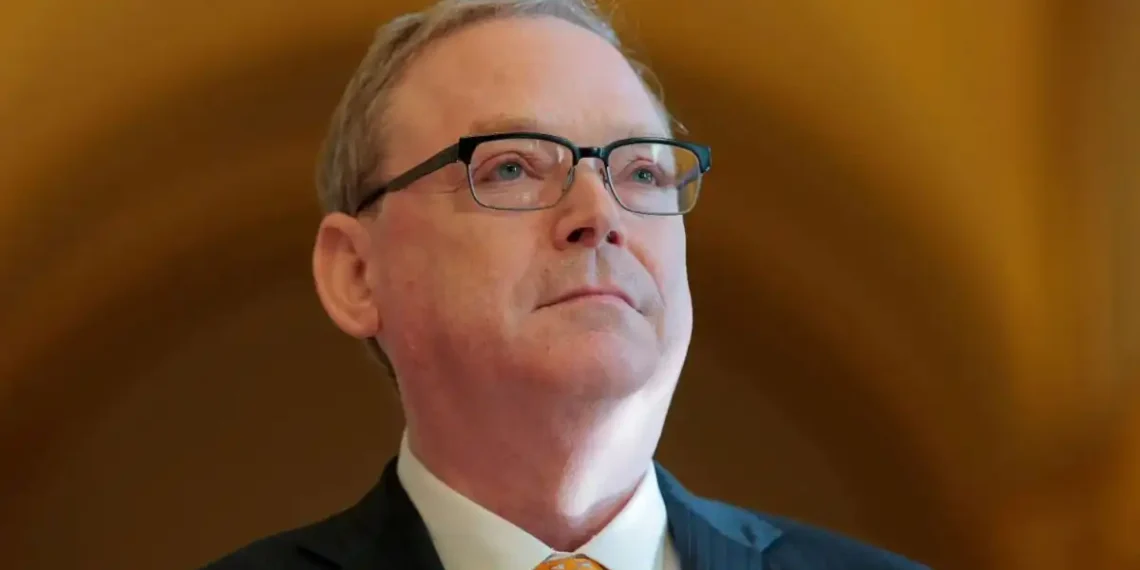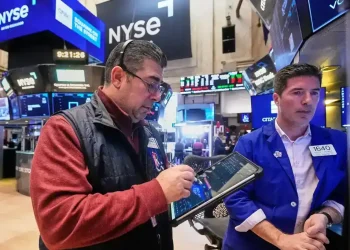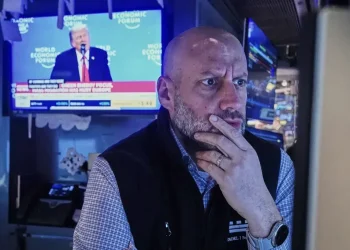Trade Deal with China ‘Very Close,’ Trump Economic Adviser Says Ahead of Monday Talks
National Economic Council Director Kevin Hassett expressed optimism on Sunday about a potential trade deal between the United States and China, with key negotiations scheduled for Monday in London.
Speaking on CBS’ Face the Nation, Hassett said he’s “very comfortable” that the deal will close soon, following President Donald Trump’s recent description of his conversation with Chinese leader Xi Jinping as “very good” and talks as “very far advanced.”
Restoring Crucial Trade Flows
A major focus of the deal is reopening the flow of rare earth minerals—essential components in electronics, electric vehicles, and military equipment—to levels seen before the trade war escalated in early April.
“Exports of critical minerals have improved, but they haven’t fully returned to the levels we agreed to in Geneva,” Hassett explained.
Leading the talks in London will be Commerce Secretary Howard Lutnick, Treasury Secretary Scott Bessent, and U.S. Trade Representative Jamieson Greer, who spearheaded recent negotiations in Geneva.
A Rocky Road: Trade War and Tariff Battles
Despite progress, tensions flared weeks ago after President Trump accused China on Truth Social of “totally violating” a 90-day trade agreement meant to ease the conflict. That deal had temporarily lowered U.S. tariffs on Chinese goods from a staggering 145% to 30%, while China reduced its tariffs on American imports from 125% to 10%.
China had also agreed to suspend various non-tariff retaliations, including restricting exports of rare earth minerals—a key point in this ongoing negotiation.
Tariffs Are Here to Stay
Since April 2, the Trump administration has imposed sweeping “reciprocal” tariffs on numerous trading partners, initially pausing and then setting them to a baseline of 10%. Hassett confirmed that tariffs will remain a part of the U.S. trade strategy going forward.
“You can be certain there’s going to be some tariffs,” he said, though he stopped short of revealing what the final baseline might be.
Commerce Secretary Lutnick, speaking earlier this year, echoed this, stating, “We will not go below 10%,” signaling that these tariffs are likely to be a long-term fixture.
Economic Impact and Revenue Gains
While the administration claims that tariffs place the burden on foreign countries, many businesses and economists warn they could harm American consumers and dampen spending. However, there is some good news: U.S. inflation slowed to its lowest in over four years in April, with consumer prices rising just 0.2%.
Hassett credits the tariff policy for helping to reduce inflation and increase government revenue. The Treasury Department reported a record $16.3 billion in customs duties collected in April alone, nearly doubling the $8.75 billion collected in March.
Since the start of the 2025 fiscal year (October 2024), total customs duties have hit $63.3 billion—over $15 billion more than the same period last year. The Congressional Budget Office (CBO) estimates that these higher tariff revenues could reduce the federal deficit by as much as $3 trillion over the next decade, although this doesn’t factor in broader economic effects.
Budget and Deficit Outlook
The U.S. government ran a $2 trillion deficit in 2024, roughly 7% of GDP. Meanwhile, House Republicans’ recent legislation to enact President Trump’s policy agenda could add $3.8 trillion to the nation’s $36 trillion debt, according to the CBO.
Bottom line: While challenges remain, the Trump administration is pushing hard to seal a trade deal with China that would ease tensions, restore critical mineral flows, and maintain tariffs as a key economic lever—hoping to boost revenue and reduce the deficit amid a complicated global trade landscape.
This article was rewritten by JournosNews.com based on verified reporting from trusted sources. The content has been independently reviewed, fact-checked, and edited for accuracy, neutrality, tone, and global readability in accordance with Google News and AdSense standards.
All opinions, quotes, or statements from contributors, experts, or sourced organizations do not necessarily reflect the views of JournosNews.com. JournosNews.com maintains full editorial independence from any external funders, sponsors, or organizations.
Stay informed with JournosNews.com — your trusted source for verified global reporting and in-depth analysis. Follow us on Google News, BlueSky, and X for real-time updates.













